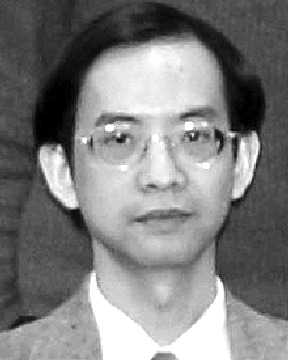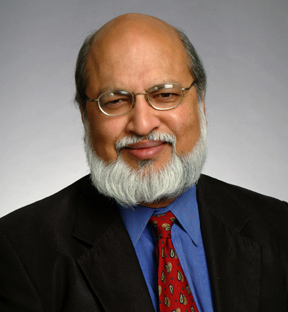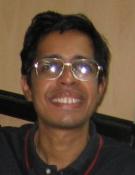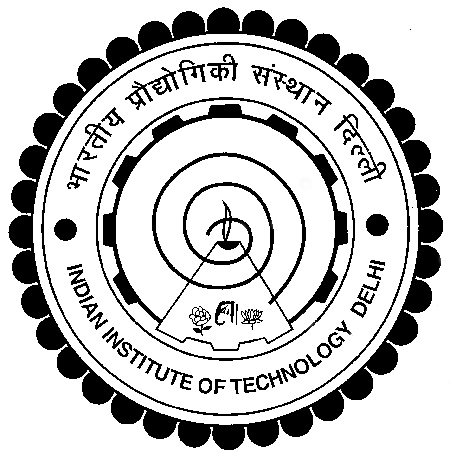FPT'11 : 12-14 December 2011 at New Delhi, India
Keynote Sessions
Field-Programmable Technology: the Next Ten Years and Beyond
by Prof. Wayne Luk, Imperial College London
Abstract
There have been many exciting advances in field-programmable technology since the first FPT Conference took place ten years ago. Just as the FPT Conference has established itself as a major event, field-programmable technology has become widely adopted for many electronic devices and computing systems. This talk reviews the progress of field-programmable technology made in the past decades, and proposes a number of challenges to be addressed in the next ten years and beyond
Speaker's bio
Wayne Luk is Professor of Computer Engineering at Imperial College London. He founded and leads the Computer Systems Section and the Custom Computing Group in Department of Computing, and was Visiting Professor at Stanford University and Queen's University Belfast. His research interests include reconfigurable computing, field-programmable technology, and design automation. Many of his papers received awards from the ASAP, FPL, FPT, SAMOS, SPL and ERSA conferences, and he also won a Research Excellence Award from Imperial College London. He is a Fellow of the IEEE and a Fellow of the BCS, and is Editor-in-Chief for ACM Transactions on Reconfigurable Technology and Systems.

Value of Rapid Prototyping in Building Complex Digital Systems
by Prof. Arvind, CSAIL, MIT
Abstract
Modern systems often contain special-purpose hardware for performance and power reasons. It is sometimes difficult to know a priori the best decomposition of the system from performance point of view. Since different components are designed by different teams it also difficult to ensure that the whole system would function properly when various components are put together. These risks can be mitigated substantially if one can build rapidly an accurate and fast prototype of the system being designed. Such prototyping does not extend the time-to-market if the design methodology ensures that there is an automatic or semiautomatic path from the prototype design to the real product design. Our methodology has three essential aspects: reusing complex blocks involving domain expertise; experimenting with designs to achieve goals such as cost, performance, and power; conducting high-fidelity full system simulation, including software, throughout the design process. We will illustrate this methodology using several prototypes we have built over the past few years – AirBlue, H.264, Mulicore PowerPC simulator and BlueSSD.
Speaker's bio
Arvind is the Johnson Professor of Computer Science and Engineering at MIT. Arvind’s group, in collaboration with Motorola, built the Monsoon dataflow machines and its associated software in the late eighties. In 2000, Arvind started Sandburst which was sold to Broadcom in 2006. In 2003, Arvind co-founded Bluespec Inc., an EDA company to produce a set of tools for high-level synthesis. In 2001, Dr. R. S. Nikhil and Arvind published the book "Implicit parallel programming in pH". Arvind's current research focus is on enabling rapid development of embedded systems. Arvind is a Fellow of IEEE and ACM, and a member of the National Academy of Engineering.

Building Root of Trust
by Prof. V. Kamakoti, CSE, IIT Madras
and Mr. Sanjay Burman, CAIR, DRDO Bengaluru
Abstract
The need for building systems that are secure by design is being driven by increasing number of security threats and the cost due to system compromise. With the pervasive deployment of information technology in our lives the situation today is such that everything is a computing device - it can process, store and is networked for communication. There is increasing interdependence of all these networked computing devices which have kinetic impact on the real world. The increased interdependence leads to a situation where a security failure at one point can lead to a cascading domino effect leading to the ultimate failure of critical infrastructure whose failure can be disastrous to even human life and national security. Therefore, today the need for engineering secure systems is as necessary as the traditional engineering requirements such as performance, energy-efficiency, cost, programmability and usability. Engineering systems for achieving trustworthiness is a compelling requirement.
This talk will introduce the challenges in realization of systems that are trustworthy and discuss the potential use of FPGAs in the creation of the critial "Root of Trust" which is vital for the realization of trustworthy systems.
Speakers' bio
Kamakoti Veezhinathan is a Professor of Computer Science and Engineering at Indian Institute of Technology Madras, Chennai. His area of specialization includes Computer Architecture, CAD for VLSI and High Performance Computing. He completed his PhD from IIT Madras in 1995.

Sanjay Burman is Scientist 'H' at Center for Artificial Intelligence and Robotics, Bengaluru. His area of specilization includes Secure System Engineering. He is currently pursuing his PhD at the Department of Computer Science and Engineering, Indian Institute of Technology, Madras. He earlier completed his MTech from IIT Kanpur.









